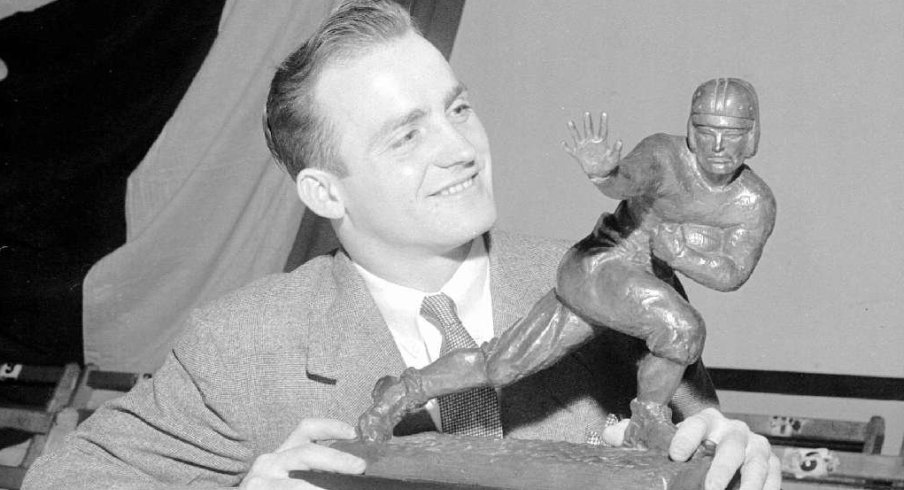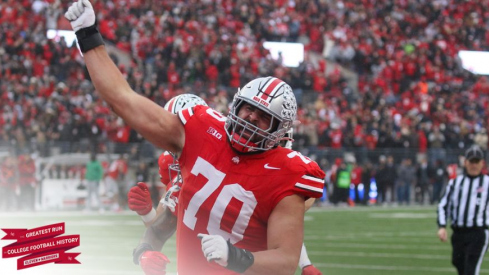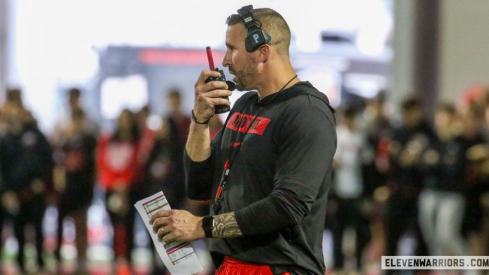With the country in the midst of World War II, college football took on a much different feel in the first part of the 1940s.
Half of the AP's final top 20 featured service teams plus two service academies, West Point and Annapolis as fielding rosters at traditional colleges proved difficult.
In fact, despite FDR encouraging football for morale purposes, some college football programs suspended play altogether while others were forced to field teams largely comprised of freshmen as the NCAA temporarily allowed them to play varsity ball since age limits typically kept them from serving in the war.
Meanwhile, upperclassmen were typically only seen on the gridiron if they failed to meet the military's physical standards or earned another exemption.
In 1944, Les Horvath became one of those exemptions. The 24-year old senior studying dentistry at Ohio State was also a member of the school's Army Specialized Training Program but the unit was discharged in August, returning Horvath to civilian status with one year of athletic eligibility.
Horvath had previously played football for the Buckeyes from 1940-42, helping Paul Brown's squad win a national championship in his final season.
With Brown and many of Ohio State's best performers off to fight in the war the following season, acting head coach Carroll Widdoes led the Buckeyes to a disappointing 3-6 mark in 1943 but with Horvath back in the fold for the 1944 season, things were indeed looking up despite a roster featuring 31 freshmen among 44 total players.
Of course, Widdoes not only had Horvath in the backfield but senior Bill Willis – a Buckeye legend in his own right – along with guards William Hackett and Warren Amling, both of which were deferred from military service after entering Ohio State's veterinary school.
Ohio State's quarterback/halfback also in charge of calling plays, Horvath got the season started with a 54-0 win over Missouri even though his own 87-yard run was called back due to a penalty.
In game two versus Iowa, Horvath went for 116 yards on 18 carries in a 34-0 victory and backed that up with a touchdown in the final minutes to ice a 20-7 win over No. 19 Wisconsin in Camp Randall.
The following week against No. 6 Great Lakes Navy, coached by none other than Paul Brown, Horvath scored a pair of touchdowns in a 26-6 win for the good guys. A week later, Horvath shredded Minnesota for 203 total yards and two scores in a 34-14 romp.
The beat went on against Indiana as he tossed a 41-yard touchdown pass and added another 115 yards on the ground in a 21-7 decision over the Hoosiers. Largely rested in a 54-19 drubbing of Pitt a week later, Horvath was ready for the final two games of the season against Illinois and No. 6 Michigan.
Taking on the Illini in Cleveland's Municipal Stadium, the largest crowd to watch a football game that season (83,627) saw Horvath run for 116 yards and two touchdowns as the Buckeyes claimed the Illibuck with a 26-12 decision.
Finally, taking on the Wolverines in Ohio Stadium, Horvath scored two touchdowns including the game-winner in a contest in which every score created a lead change. The 18-14 win marked the first time the winner of The Game won the Big Ten outright.
The Buckeyes were invited to play USC in the Rose Bowl but the conference didn't allow for postseason competition thus ending Ohio State's season with a perfect 9-0 record.
No. 1 Army would beat No. 2 Navy by a score of 23-7 the same day Ohio State handled Michigan and the Black Knights would win the national championship capturing 95 of the AP's 121 first-place votes.
Widdoes however won national coach of the year honors and Horvath claimed Ohio State's first Heisman Trophy on the strength of 669 rushing yards and 1,200 all-purpose yards, beating out Army's Glenn Davis and Doc Blanchard.



